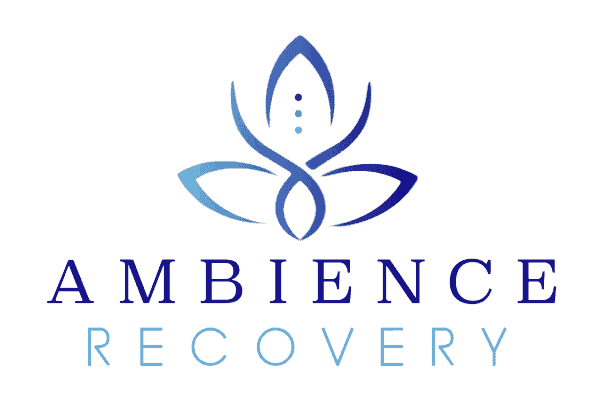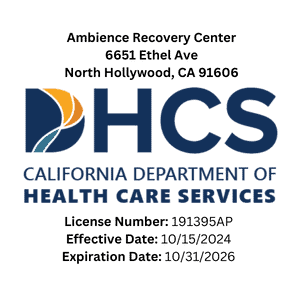Key Takeaways
- MDMA, also called Ecstasy or Molly, is a synthetic drug with stimulant and hallucinogenic effects.
- Regular use of Ecstasy can lead to addiction, serious health risks, and potential overdoses.
- Professional treatment and education can help individuals recover and avoid the dangers of MDMA.
Introduction
Ecstasy, or MDMA, is often known as a “party drug” due to its popularity at nightclubs, raves, and music festivals. Many people use it for its energizing and mood-enhancing effects, believing it to be harmless fun. However, the truth about Ecstasy is far more complicated.
This synthetic drug affects the brain’s chemistry, and its misuse can lead to severe health risks, including addiction. Ecstasy is often “cut” with other substances like ketamine or fentanyl, increasing the risk of overdose. In this article, we’ll explore what MDMA is, why people use it, the dangers of addiction, and how to seek help if you or someone you know is struggling.
What is MDMA (Ecstasy)?
MDMA, or 3,4-methylenedioxymethamphetamine, is a synthetic drug that combines stimulant and hallucinogenic effects. It is commonly sold as:
- Ecstasy: Pills or tablets often containing unknown additives.
- Molly: A powdered or capsule form marketed as “pure” MDMA, though it is often mixed with other substances.
How Does MDMA Work?
MDMA increases the activity of brain chemicals like:
- Dopamine: Produces feelings of pleasure and energy.
- Serotonin: Enhances mood, emotional closeness, and sensory perception.
- Norepinephrine: Boosts heart rate and blood pressure.
While MDMA may create a euphoric experience, it also disrupts the brain’s natural balance, which can lead to dangerous consequences.
Why Do People Use MDMA?
Ecstasy is commonly used in social settings like nightclubs, raves, and festivals because it enhances sensory experiences.
Reasons People Use MDMA:
- Feelings of euphoria and increased confidence.
- Heightened sensory perception (e.g., music sounds better, lights appear brighter).
- Reduced anxiety and enhanced social interactions.
While these effects may seem appealing, the risks of MDMA use far outweigh the temporary benefits.
Risks and Dangers of MDMA Use
Physical Risks
MDMA use can have harmful effects on the body, primarily when used in large amounts or mixed with other substances.
- Hyperthermia: MDMA raises body temperature, which can lead to dehydration, heatstroke, or even organ failure.
- Heart and Blood Pressure Issues: Increased heart rate and blood pressure put users at risk of heart problems.
- Other Side Effects: Muscle cramping, blurred vision, nausea, and chills.
Mental and Emotional Risks
- Mood Swings: MDMA depletes serotonin, causing emotional “crashes” after the drug wears off.
- Anxiety and Depression: Long-term use can lead to persistent mental health issues.
- Confusion and Memory Loss: Frequent use disrupts cognitive function, making thinking complex.
Risk of Overdose
Overdosing on Ecstasy is a serious risk, particularly since it’s often laced with other substances like fentanyl or methamphetamine.
Signs of Overdose Include:
- High fever, rapid heart rate, or difficulty breathing.
- Confusion, seizures, or unconsciousness.
If you suspect someone is overdosing, call 911 immediately.
Is Ecstasy Addictive?
MDMA has a high potential for abuse and dependency, even though it doesn’t create the same cravings as opioids or methamphetamine.
How Addiction Develops:
- Repeated use leads to tolerance, where users need higher doses to feel the same effects.
- Dependency occurs when people rely on MDMA for social interactions or emotional relief.
- Addiction is marked by the inability to stop using despite adverse consequences.
Signs of MDMA Addiction:
- Cravings for the drug.
- Using MDMA more frequently or in more significant amounts.
- Prioritizing drug use over responsibilities like work or relationships.
Health Risks of Long-Term MDMA Use
Cognitive and Emotional Effects:
- Chronic users often experience memory problems and impaired concentration.
- Long-term serotonin depletion can lead to anxiety, depression, and mood instability.
Physical Consequences:
- Damage to the heart, liver, and kidneys from repeated use.
- Weakened immune system, making it harder for the body to fight off illness.
Treating Ecstasy Addiction
Recognizing the Need for Help
Addiction can be difficult to admit, especially for those who associate MDMA use with social activities. However, signs like persistent cravings, difficulty stopping, or withdrawal symptoms signal the need for treatment.
Treatment Options for Ecstasy Addiction
Detox Programs:
- Medical detox helps manage withdrawal symptoms, such as fatigue, depression, or sleep disturbances.
- Supervised care ensures safety during the detox process.
Inpatient Rehabilitation:
- Inpatient rehab provides a structured environment for intensive treatment.
- Therapies like Cognitive Behavioral Therapy (CBT) help address triggers and replace unhealthy habits.
Outpatient Programs:
- Flexible treatment options for those with work or family commitments.
- Group and individual counseling sessions to support recovery.
Peer Support Groups:
- Programs like Narcotics Anonymous (NA) provide accountability and encouragement.
- Connecting with others in recovery helps reduce isolation.
Preventing MDMA Use and Overdose
Awareness and Education
- Educate teens and young adults about the dangers of MDMA.
- Dispel myths that Ecstasy is a “safe party drug.”
Harm Reduction Strategies
- Test substances for harmful additives using drug-testing kits.
- Encourage users to stay hydrated and avoid overheating during social events.
Building a Support System
- Surround yourself with friends and family who encourage healthy, substance-free habits.
- Consider therapy or counseling to develop coping strategies for stress and social pressures.
Conclusion
MDMA, commonly referred to as Ecstasy or Molly, may seem like a harmless party drug, but it poses serious health risks. From physical complications like overheating and heart problems to the long-term impact on mental health, the dangers of MDMA use should not be underestimated. Addiction to Ecstasy can develop over time, but with proper treatment and support, recovery is possible.
If you or someone you know is struggling with MDMA addiction, professional help is available. Contact Ambience Recovery at 866-721-7470 to take the first step toward healing and a healthier future.
FAQs About Ecstasy Effects and Addiction Treatment Options
What is MDMA?
MDMA, also known as Ecstasy or Molly, is a synthetic drug with stimulant and hallucinogenic effects. It increases energy and alters mood.
Is Ecstasy addictive?
While not as addictive as opioids, MDMA has a high potential for abuse, and frequent use can lead to dependency and substance use disorder.
What are the risks of using Ecstasy?
Risks include dehydration, overheating, heart issues, and long-term mental health problems. The risk of overdose increases when MDMA is mixed with other substances.
How is MDMA addiction treated?
Treatment includes detox programs, inpatient or outpatient rehab, behavioral therapies, and support groups like Narcotics Anonymous.
Can MDMA use cause long-term damage?
Yes, long-term use can damage serotonin-producing neurons, leading to mood instability, memory problems, and physical complications.
What is ecstasy addiction treatment?
Ecstasy addiction treatment typically involves a combination of behavioral therapies, counseling, and support groups to help individuals who are struggling with addiction to MDMA or ecstasy. Treatment may also address co-occurring mental health issues and provide education about the effects of ecstasy.
What are the effects of MDMA on the body?
The effects of MDMA can include increased energy, feelings of euphoria, enhanced sensory perception, and emotional warmth. However, it can also lead to adverse health effects such as anxiety, paranoia, and a rise in body temperature, which can be potentially dangerous.
Is MDMA addictive?
While MDMA is not considered to be as addictive as substances like cocaine or heroin, some individuals may develop a pattern of continued use that can lead to psychological dependence. Researchers and organizations consider MDMA to be a psychedelic, and its potential for addiction varies among users.
How can the party drug MDMA be used safely?
There is no completely safe way to use MDMA, mainly since it is often sold as MDMA but may be cut with other substances. Individuals who use MDMA should be aware of the potential health effects and risks involved, and it’s advised to avoid mixing it with other drugs, including alcohol.
What are the latest findings from NIDA regarding ecstasy use?
The latest from NIDA indicates that ecstasy, also known as molly, can have significant long-term health effects, including changes in mood and cognition. Research continues into the impact of ecstasy and MDMA on brain health and behavior.
What are the common effects of taking ecstasy and MDMA?
The effects of taking ecstasy can include heightened sensory perception, increased sociability, and feelings of emotional closeness to others. However, it can also result in adverse effects such as dehydration, anxiety, and the potential for overdose.
Are there any treatment options available for individuals addicted to ecstasy?
Yes, treatment for ecstasy addiction may involve therapy, support groups, and sometimes medication to help manage withdrawal symptoms and cravings. Individuals must seek professional help to address their addiction effectively.
What are the risks associated with ecstasy overdose?
Ecstasy overdose can lead to severe health complications, including increased heart rate, hyperthermia, seizures, and even death. Users must recognize the signs of overdose and seek immediate medical attention if they suspect someone is experiencing one.
How does the continued drug use of ecstasy affect mental health?
Continued use of ecstasy can lead to long-lasting changes in mood and cognition, including depression and anxiety. Individuals who use MDMA may also experience memory problems and difficulties in social relationships as a result of their drug use.
What should individuals know about the relationship between ecstasy and molly?
Ecstasy and molly are often used interchangeably, but molly is generally considered to be a purer form of MDMA. However, both substances can have similar effects and risks, and users should be cautious about the potential for adulterants in either form.
Resources
https://www.dea.gov/factsheets/ecstasy-or-mdma-also-known-molly
https://www.betterhealth.vic.gov.au/health/healthyliving/mdma-ecstasy
https://adf.org.au/drug-facts/mdma/
Katie is a Licensed Clinical Social Worker who has worked as a primary therapist, supervisor, and now clinical director for SUD/MH treatment centers for the past 12 years. Katie is trained in Brainspotting, EMDR, Internal Family Systems and Dialectical Behavior Therapy and is passionate about treating substance use disorders, trauma and grief.






